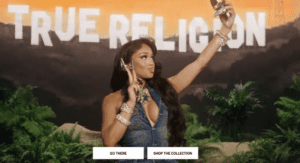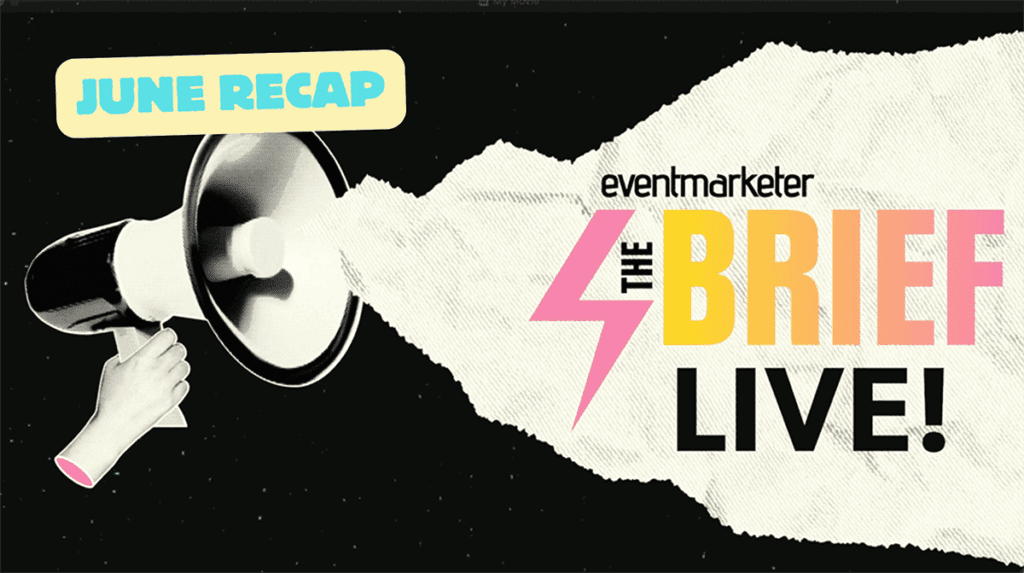
Customers no longer just want to buy from brands with great products and services. Today, customers want to support brands that share their values and have the courage to act on those beliefs.
That means that brands can’t afford to take a passive role in the narratives affecting their industry and their customers, says on-demand marketing consultant Katie Martell.
“Thanks to the prevalence of marketing—we see thousands of marketing messages a day—businesses play a massive role in modern society as culture-makers and opinion-drivers,” says Martell, who is moderating a keynote discussion on the next decade of marketing this week at Connect to Convert in Boston.
Once upon a time, there was a church/state separation between brands and hot button issues,. But today, those lines are blurred, and cause marketing is top of mind for brands, she notes. Consider how Patagonia took a stance on environmental protection by donated $10 million saved in tax cuts to grassroots activism, how Nike supported Colin Kaepernick’s protest of police brutality against African Americans or children’s magazine Highlights stance on family separation at the border.
“This is not just a PR issue, or a matter of including certain societal hot button issues in a marketing / PR campaign,” says Martell. “It also extends to internal policies about who companies chose to do business with.”
The future of marketing lies in being value-based, but that can’t start from the marketing department, says Lindsey Christensen, CMO of Thoughtbot. It has to be embedded in the company already, and be a part of how the company operates.
“It needs to be reflected in how leadership is thinking and acting,” says Christensen. “If that exists, then as a marketer you have this gift to amplify those values that are already true to your business.”
Stay True to Your Brand
For Constant Contact, the idea of getting involved is baked into the company’s DNA, says Hannah Budreski, vice president of marketing.
“At the end of the day, we’re a mission based company,” says Budreski. “We’re hyper focused on the success of small businesses, and that’s an easy proposition to get behind. How could anyone be against America’s small businesses?”
More From Connect to Convert Keynote Panelists:
- Content Helps Toast Serve Tech to Restauranteurs”
- Thoughtbot CMO on Creating a Marketing Foundation
- John Hancock Puts the Focus on Customers in B2B and B2C
- Q&A: Constant Contact’s Budreski on LTV and B2B Engagement
- The New Rules of Feminism in Marketing
That’s an admittedly non-controversial stance, but the company has had conversations about getting dipping its corporate toes into other issues, like a “get out the vote” campaign. Still, even something as vanilla as that can have consequences.
“Somebody said ‘you know, there will be a lot of angry calls, because this is [perceived] as a super liberal issue’. I thought ‘What????’ I couldn’t believe it,” she says. “No matter what you choose, you’re going to alienate somebody. But your brand can’t be everything to everybody.”
Toast also chooses to focus its cause marketing efforts on issues close to the hearts of its customers and employees. The restaurant management platform recently launched Toast.org, a nonprofit arm focused on solve food issues in communities
“The food landscape is core to our mission,” says Kelly Esten, senior director of product marketing at Toast. “And it’s important for us to think about what is important to restauranteurs. Many of our employees grew up in the food and beverage industry, and are passionate about that and seeing small businesses thrive.”
Issue-based marketing needs to be something that is a truth for the company, Christensen says. For Thoughtbot, an unexpected opportunity came up when someone on the team put together inclusivity guidelines for internal use, to offer guidance on things like making sure everyone feels represented, and helping avoid micro-aggressions. The guidelines were posted in conference rooms, and also reposted as an open source on GitHub and pinned to the company Twitter account.
“People started flooding us with messages,” says Christensen. “The response was amazing, with people telling us how they were going to use it and giving feedback on how to improve it, which was welcome.”
Be Brave
Courage is an important characteristic in life and marketing, says Rahim Rajpar, head of insurance marketing and direct to consumer business of John Hancock.
“Societal issues are something brands should embark on and corporations do have a larger responsibility the community. But deciding what to stick your neck out on requires consideration.”
Your commitment to a cause may feel empowering and energizing to segments of your audience—but it won’t click with everyone. “Certain segments may see your brand as one they now don’t want to do business with that,” Rajpar notes.

If a brand is committed to a cause, they need to go beyond just changing their homepage for the day, he says. Customers will see through that in a heartbeat. “Customers are savvy, so you have to be cautious.”
In Massachusetts, where John Hancock is based, the company stood behind Question 3 issue, a gender identity anti-discrimination initiative. “It was important for our employees, so we stood behind legislation that was going to further the cause, says Rajpar.
“If you’re really about making a stand, get behind legislation that would further the cause,” he adds. “Fund employee groups in your company that support the issue. Don’t just change the logo.”
It’s key to make sure that whatever you do is truly in the spirit of giving back and not just a ploy to be relevant in the latest news cycle, agrees Constant Contact’s Budreski. When a hurricane hit Houston, it took out a few of the company’s data centers in the area. It donated to organizations providing aid in that area, and assisted some nearby customers, but didn’t make the effort public.
“We just did it because it was the right thing to do. If someone asked us about it, that’s fine,” says Budreski. “We do the right thing because we believe in it. I think some businesses exploit that a bit. For example, everybody celebrated Pride. Are you doing it because your company is really behind it, or because everybody is celebrating? We try to understand where are customers are and what they care about—if they’re aligned with where we are and what we care about, then it’s a great fit.”



 Network
Network

